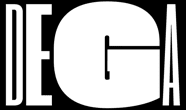Building a project on the blockchain can be intimidating. Especially when you have to get into all of the technical details and build things from scratch. In web3 gaming you might have a game off-chain but want to add blockchain elements which is a completely different endeavor.
There is a way to make blockchain integration easier: blockchain infrastructure tools.
What are blockchain infrastructure tools?
Infrastructure is a basic system that you build upon. Blockchain infrastructure tools provide ready-to-use technology that help developers build and scale on the blockchain while also leaving a lot of space for customization. They do the groundwork so that you don’t have to worry about getting all the technical details yourself.
Infrastructure tools provide you with the best web3 scaling solutions. That way you don’t have to reinvent the wheel and find the best ways to scale.
Web3 infrastructure tools also make sure that you’re not alone if something needs fixing. Most have support that will help you if you have questions.
I’ll be listing five infrastructure tools that caught my attention. These tools can help you put your project on the blockchain.
Chainstack

This is a well established service that’s been around since 2018. It lets you deploy a network or a public node in your own instance, or in a cloud-managed by Chainstack. You can access your nodes directly through native API, you can also stop a node if you’re not using it. There’s a marketplace to expand functionality for your nodes as well.
Chainstack makes it simple to launch and scale decentralized networks and applications with an intuitive user interface, seamless orchestration, and predictable pricing. You focus on developing your app instead of the blockchain-specific DevOps.
Chainstack supports 17 public chains including Ethereum, BNB Chain, Polygon, and Solana, as well as four consortium blockchain protocols. They offer tools and support for both enterprises and small teams.
Elympics

Elympics provides infrastructure for multiplayer web3 games: from secure networking implementation, automated delivery and scaling, to blockchain integration.
They have a library of essential smart contracts for game developers. It contains ready-to-use EVM smart contracts to implement in games. They also offer in-game wallet integration, on-chain game results tool, gameplay analytics, blockchain integration with smart contract oracle, scalable multiplayer, fair matchmaking, and security for your smart contracts.
Elympics also helps you develop and launch your game and has Unity integration. They would be useful for game developers who want to launch a multiplayer game and add blockchain integration to it.
Mozart

Mozart provides APIs and tools to integrate NFTs into games. They offer seamless integration of minting, trading, and custom logic around NFTs with Stripe-like APIs to power different gameplay experiences.
It’s important to note that they also take care of wallet creation, transactions, and gas fees. Users can sign in with their socials and purchase assets with credit cards so it feels just like interacting with any other app.
With Mozart you as a developer can manage your game assets with a no-code dashboard: create, update and manage NFTs, players, and the metadata associated with them. They support carbon neutral blockchains and don’t charge gas fees. You can rent or lease NFTs, dynamically update metadata (something that OpenSea doesn’t allow), make player wager pools, and monetize in-game resources based on usage.
Overall it seems like Mozart provides a great many options to customize NFTs and NFT usage in games.
Moonstream.to
![]()
Moonstream.to is economic infrastructure for web3 games. It makes it easy to manage blockchain game economies by adding tools to control token utility, inflation, player engagement, and more. The company has processed over $4B in transactions in 2022.
Game designers use Moonstream for web3 data analytics and to create currency sinks, tokens for in-game items, consumables, and lootboxes for their players. There are tools to create loyalty programs, crafting recipes, and a library of game mechanics to build fully on-chain game experiences. Moonstream minigames with on-chain leaderboards create utility for tokens. Moonstream’s bots secure economies against bad actors.
Moonstream.to gives developers tools and APIs to create healthy economies and web3 analytics to monitor those tools’ effectiveness in real time. It currently supports any EVM-based blockchain, such as Ethereum, Polygon, Gnosis Chain, and more. All the tooling is open source.
DEGA

DEGA’s goal is to provide developers with infrastructure and tools that use an open protocol to successfully scale games and to create better web3 user experience and easy user onboarding.
It works through creation of new blockchains called Metachains that provide rapid scaling. Using ZK-STARKS, Metachains are created to handle peak transaction volume workloads or as a dedicated infrastructure for apps. Each Metachain can have its own custom technology and tokenomics.
DEGA is secured by NFTs. DEGA NFTs are used as avatars, reputation certificates and provide yield for the holders. It’s a gamified mechanic that allows easy and quick user onboarding.
DEGA also has dAuth – simple wallet creation and authentication. With dAuth, users can create a self-custodial wallet that hides the complexity of key management but lets users stay in control of their assets.
Most of the tools mentioned above are still in early access. You can join their DIscord servers to ask any questions you may have about their technology and roadmap.
It’s important to support companies that build tools to advance web3 technology in gaming. At the end of the day, more competition means better user experience.
